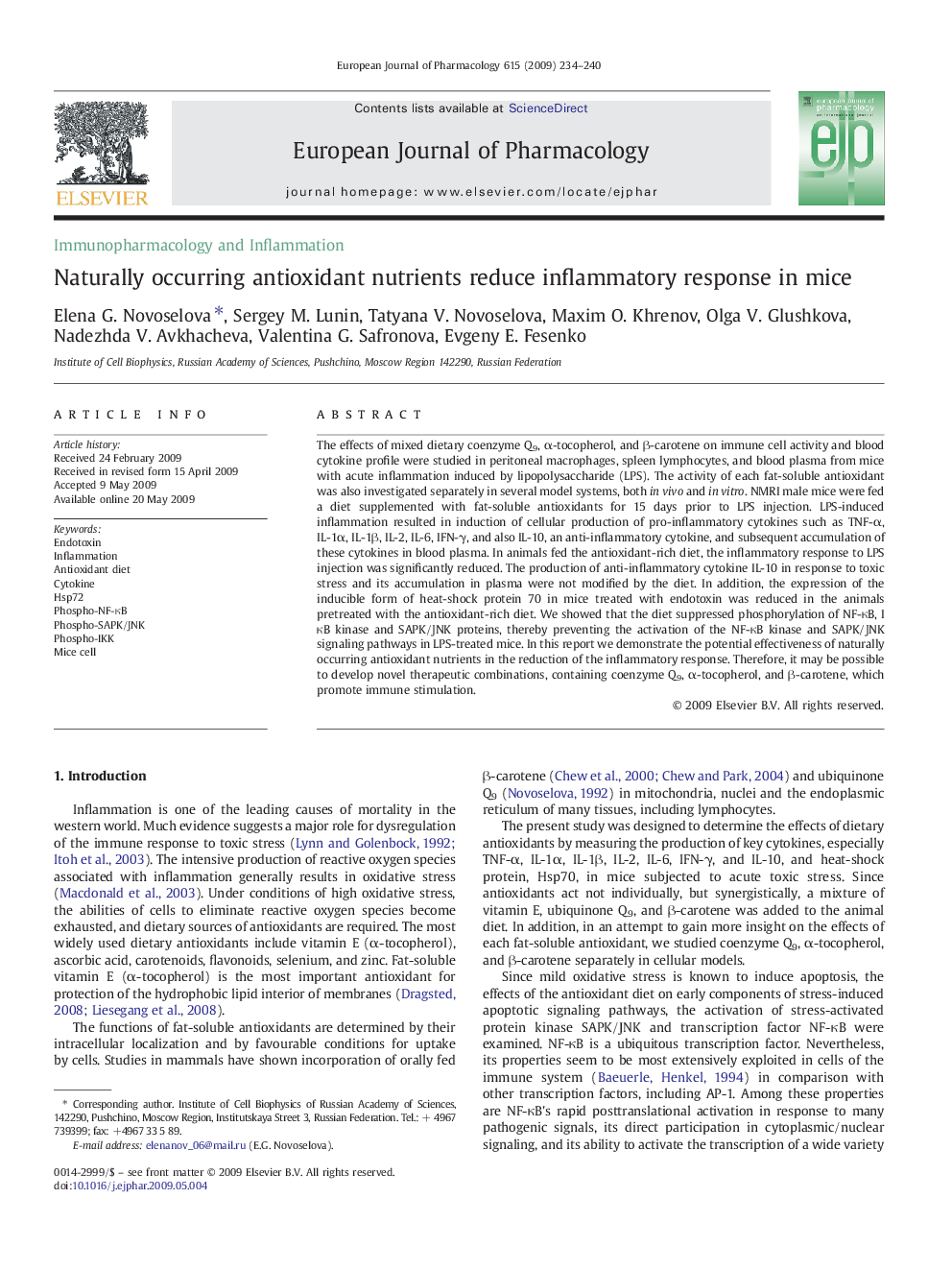| Article ID | Journal | Published Year | Pages | File Type |
|---|---|---|---|---|
| 2534230 | European Journal of Pharmacology | 2009 | 7 Pages |
The effects of mixed dietary coenzyme Q9, α-tocopherol, and β-carotene on immune cell activity and blood cytokine profile were studied in peritoneal macrophages, spleen lymphocytes, and blood plasma from mice with acute inflammation induced by lipopolysaccharide (LPS). The activity of each fat-soluble antioxidant was also investigated separately in several model systems, both in vivo and in vitro. NMRI male mice were fed a diet supplemented with fat-soluble antioxidants for 15 days prior to LPS injection. LPS-induced inflammation resulted in induction of cellular production of pro-inflammatory cytokines such as TNF-α, IL-1α, IL-1β, IL-2, IL-6, IFN-γ, and also IL-10, an anti-inflammatory cytokine, and subsequent accumulation of these cytokines in blood plasma. In animals fed the antioxidant-rich diet, the inflammatory response to LPS injection was significantly reduced. The production of anti-inflammatory cytokine IL-10 in response to toxic stress and its accumulation in plasma were not modified by the diet. In addition, the expression of the inducible form of heat-shock protein 70 in mice treated with endotoxin was reduced in the animals pretreated with the antioxidant-rich diet. We showed that the diet suppressed phosphorylation of NF-κB, I κB kinase and SAPK/JNK proteins, thereby preventing the activation of the NF-κB kinase and SAPK/JNK signaling pathways in LPS-treated mice. In this report we demonstrate the potential effectiveness of naturally occurring antioxidant nutrients in the reduction of the inflammatory response. Therefore, it may be possible to develop novel therapeutic combinations, containing coenzyme Q9, α-tocopherol, and β-carotene, which promote immune stimulation.
